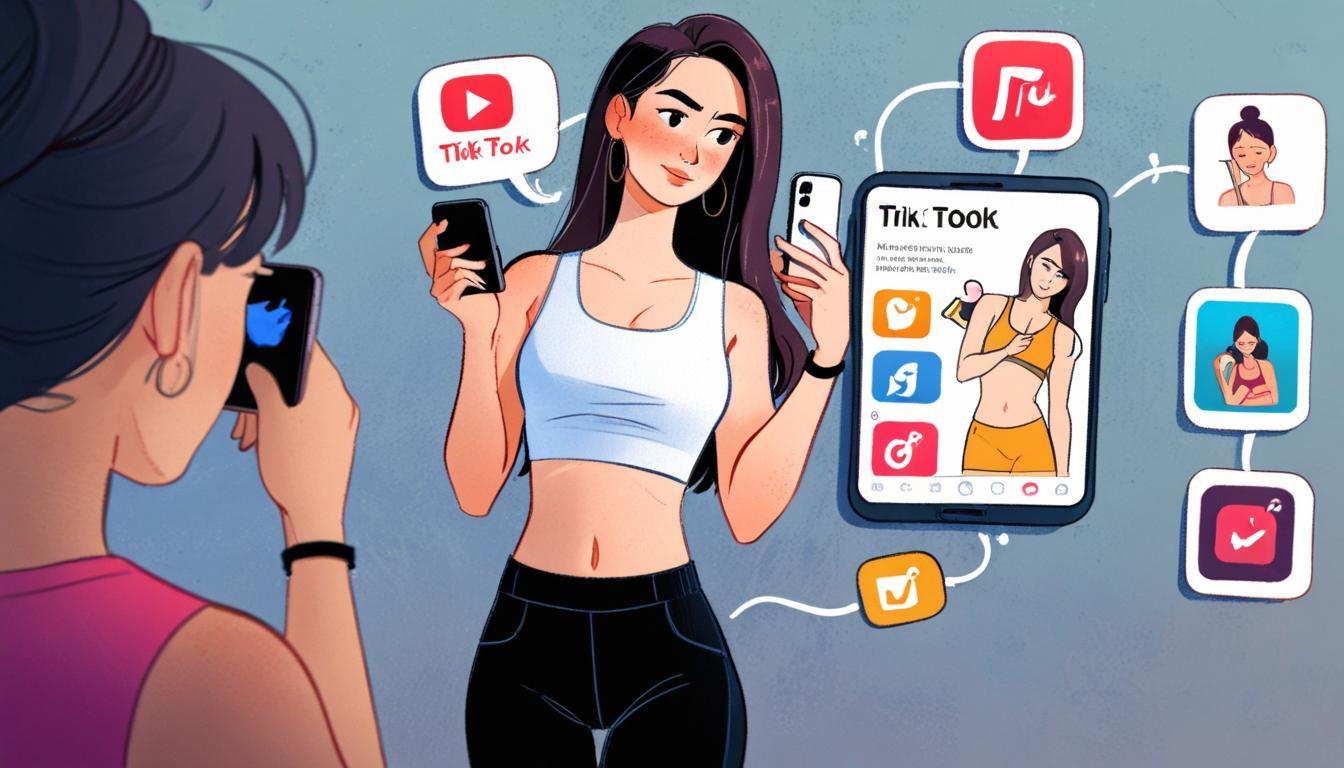The rise of the #SkinnyTok trend on TikTok has sparked expert concerns about its influence on body image, particularly among vulnerable young users striving for health inspiration. This phenomenon highlights the complex relationship between social media, peer pressure, and mental health.
As social media users continue to seek health and fitness inspiration online, a recent trend known as #SkinnyTok on the video-sharing platform TikTok has sparked concern among experts and commentators regarding its impact on body image, particularly among vulnerable individuals.
Édaein O’Connell, writing for The Belfast Telegraph, recounts her experience of encountering the #SkinnyTok trend while attempting to adopt healthier habits. She describes how her social media feeds quickly became saturated with content promoting what are portrayed as ‘skinny girl habits’. These videos often feature young women who are slim and toned sharing routines or dietary tips aimed at achieving a certain body aesthetic.
In one instance, O’Connell describes being interrupted mid-indulgence by a video of a young woman in her mid-20s showcasing her fit physique, a scene emblematic of the type of content populating #SkinnyTok feeds. This trend typically involves users demonstrating disciplined health routines, but it can also convey implicit and explicit messages about body size and shape ideals.
Health experts have noted that social comparison dynamics have intensified with the rise of social media, shifting from a traditional celebrity-to-layperson model to peer-to-peer interactions. This peer-driven nature of platforms like TikTok means that body image pressures can be more immediate and pervasive. The content shared in these spaces might contribute to an environment where individuals feel compelled to meet an often narrow standard of physical appearance.
The #SkinnyTok content has raised fears over body image, particularly among young and impressionable audiences who may interpret these posts as benchmarks for normal or desirable behaviour. O’Connell’s observations highlight how social media trends, while frequently offering motivation and community, can also carry risks related to self-esteem and mental health.
The Belfast Telegraph is reporting on this growing discourse surrounding social media body image trends and the complex effects they have on users navigating their health journeys in the digital age.
Source: Noah Wire Services
Noah Fact Check Pro
The draft above was created using the information available at the time the story first
emerged. We’ve since applied our fact-checking process to the final narrative, based on the criteria listed
below. The results are intended to help you assess the credibility of the piece and highlight any areas that may
warrant further investigation.
Freshness check
Score:
8
Notes:
The narrative discusses a current social media trend (#SkinnyTok) actively present on TikTok, indicating timeliness. There are no outdated references or mentions of persons who have changed roles or deceased. The content does not appear recycled from older news or press releases but rather addresses ongoing social media phenomena and recent expert concerns.
Quotes check
Score:
7
Notes:
Direct quotes are paraphrased personal observations and comments on social media content rather than verbatim authoritative quotes. No earliest sources for specific quotes can be precisely identified online, suggesting originality in the author's firsthand account, which supports freshness and originality.
Source reliability
Score:
8
Notes:
The narrative originates from The Belfast Telegraph, a reputable regional UK publication known for credible reporting. While not a global news giant, it maintains journalistic standards lending trustworthiness to the coverage of social and cultural issues.
Plausibility check
Score:
9
Notes:
The claims about #SkinnyTok fostering body image concerns among young social media users align with widely reported psychological and sociological research on peer-driven social media influence. The assessment of peer pressure and mental health risks is plausible and consistent with known patterns of social media impact.
Overall assessment
Verdict (FAIL, OPEN, PASS): PASS
Confidence (LOW, MEDIUM, HIGH): HIGH
Summary:
The narrative addresses a timely and ongoing social media trend without signs of outdated information or recycled content. The quoted material appears original, and the publication is credible. The claims are consistent with established understandings of social media's impact on body image, supporting the article's accuracy and reliability.
